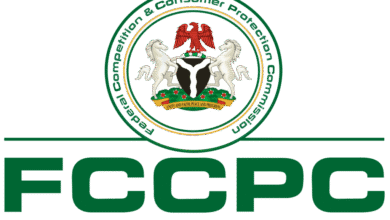WTO Can Deliver Results If Members Accept -DG Okonjo-Iweala

Addressing the WTO General Council immediately after taking office on 1 March, Director-General Ngozi Okonjo-Iweala called on members to “do things differently” to achieve reforms necessary to keep the WTO relevant, starting with swift action to curb harmful fisheries subsidies, and to help scale up COVID-19 vaccine production and distribution.
The new head of the WTO noted that high expectations for her tenure can only be met if members are willing to compromise and reach agreements.
DG Okonjo-Iweala suggested that prospects for a successful Twelfth Ministerial Conference would be enhanced if members target a manageable number of deliverables for this year, and set up longer work programmes to address issues that cannot realistically be resolved within that timeframe.
Her full remarks are below:
Mr Chairman, Excellencies, Ladies & Gentlemen, Good morning. I am delighted to be with you in Geneva even if circumstances do not yet permit all of us to meet in the same room. Let me at the outset express my gratitude to our Chair, Ambassador Walker, incoming Chair Dacio Castillo and Ambassador Aspelund for their hard work and persistence in getting me here.
As I take office as DG, I want to thank you Members once more for the kind wishes and support many of you expressed two weeks ago when you made history by electing me. The large number of delegations (91 in all) that spoke is unprecedented and speaks to the desire of all for a fresh start.
Let me specially thank the four DDGs Messrs. Yonov Agah, Mr Karl Bruner, Mr Alan Wolff, and Mr Yi Xiaozhun for ably holding the fort since September. I know this was not easy. Let me also thank the management and staff of the Secretariat for their warm welcome, their enthusiasm and desire to see things done differently.
I remain honored and humbled by the confidence Members have placed in me. I will bring all my knowledge, passion, experience and persistence to the task at hand, reforming the organization and achieving results.
I am conscious that expectations are high and shall do my utmost to move us forward. However, this is a membership driven organization so I cannot do it without you, I cannot do it without the cooperation of staff and management. What we are involved in is a tripartite partnership. Each partner has to play its part if we are to get results. High expectations of my leadership also means that I have high expectations of you to help me deliver.

I have said it. It cannot be business as usual. We have to change our approach from debate and rounds of questions to delivering results. Excellencies, many of you put in long hours and a great deal of effort to do good work much of which goes unnoticed. There are excellent people in the capitals doing good work. We have talented staff in the Secretariat. But the world is no longer cognizant of this, does not recognize the effort because we are not delivering results at the pace required by our fast-changing environment. Last week at the TNC, several Ambassadors said that You Excellencies talk past each other. You don’t talk to each other. This approach has to change. We have to be more accountable to the people we came here to serve — the ordinary women and men, our children who hope that our work here to support the MTS, will result in meaningful change in their lives, will improve their standard of living, and create decent jobs for those who seek work.
Excellencies, coming from the outside I have noticed that the world is leaving the WTO behind. Leaders and decision makers are impatient for change. Several Trade Ministers said to me that if things don’t change, they will no longer attend the Ministerial because it is a waste of their time. I have noticed that more and more of the work and decision making that should be undertaken at the WTO is being done elsewhere because there is an increasing loss of confidence in the ability of the WTO to produce results. But there is hope. If we all accept that we can no longer do business as usual, that will help us create the parameters for success.
A few days ago, I listened carefully over a 6-hour time period to all 56 statements of delegations at the TNC and I analyzed the priorities that were repeatedly being put forward. They were virtually identical to the priorities I set out in my acceptance speech two weeks ago. Delegations want the WTO to contribute more meaningfully and faster to a resolution of the COVID-19 pandemic both the public health crisis as well as economic recovery. Delegations want the Fisheries Subsidies negotiations concluded, they want Reform of the Dispute Settlement System including Restoration of the Appellate Body. They want action on Agriculture, on market access, Domestic Support, existing mandates such as PSH, SSM and Cotton. They also want action on industrial subsidies to SOEs and SDT. Without neglecting the questions raised on the legal status of JSIs, delegations want forward movement on JSIs especially e-commerce, Services Domestic Regulation, Investment Facilitation, and MSMEs. There is a desire to enhance dialogue and action on women in trade. Delegations recognize that the issue of Trade and Environment/Climate Change is key and want forward movement on this. Least developed countries emphasized issues of specific interest to LDCs that would lead to enhancing their growth and development including the need for Special and Differential Treatment, Services Waiver, Preferential Rules of Origin etc. and also review of issues related to graduation. Small and Vulnerable Economies (SVEs) emphasized the need for attention to their vulnerability and special status. Virtually every delegation mentioned the urgency and importance of MC12 and all actions were to be concluded at or by MC12 in December. MC12 gives us a timeline but I want to caution against loading too many expectations into MC12. We want a recipe for success not failure. Therefore, we must work hard to complete a few deliverables before MC12 so that Ministers can focus on ratifying agreements and agreeing best methods for implementation. In this regard, we need to prioritize action on COVID-19 both for the immediate and longer term and focus on completing Fisheries Subsidies negotiations before the middle of the year. We must agree the road map for reform of the Dispute Settlement System and prepare a work program to achieve this which can be endorsed at MC12. On Agriculture, let us identify a few things we can deliver such as PSH, SSM, Cotton, and the WFP Humanitarian waiver which is material to our Pacific Island economies as we heard a few days ago. We must put forward a subsidies work program both on domestic support and industrial subsidies which can be agreed on at MC12. We must sharpen our approach to SDT bearing in mind how crucial this is to the policy space of Least Developed Countries in particular. For the rest, let us review the work on e-commerce, investment facilitation, Services Domestic Regulation, MSMEs, Women in Trade, and Trade and Climate to see what aspects of these important work programs we can advance at MC12. So in short, I am suggesting three or four clear deliverables finalized before MC12 and work programs for the rest to be agreed at MC12.

Permit me Ladies and Gentlemen to spend just a little time on COVID-19. We have a demand for a TRIPS waiver by a growing number of developing countries and the dialogue is intensifying. Whilst this is happening, I propose that we “walk and chew gum” by also focusing on the immediate needs of dozens of poor countries that have yet to vaccinate a single person. People are dying in poor countries. We just had our first COVAX shipment to Ghana last week and others will follow but it will not be enough. There is serious supply scarcity and some countries are out bidding COVAX and diverting supplies. The world has a normal capacity of production of 3.5billion doses of vaccines and we now seek to manufacture 10billion doses. This is just very difficult, so we must focus on working with companies to open up and license more viable manufacturing sites now in emerging markets and developing countries. We must get them to work with us on know how and technology transfer now. There will soon be a world manufacturing convention where we can seek to build this partnership. I also hope we can initiate a dialogue and information exchange between us and representatives of manufacturers associations from developing and developed countries. Excellencies, this should happen soon so we can save lives. As I said at the beginning, this will be an interim solution whilst we continue the dialogue on the TRIPS waiver.
Excellencies, Ladies and Gentlemen, forgive me for taking so much of your time but we have absolutely not a moment to lose because time is short. To kick this delivery approach off, I propose to meet with you individually and in groups starting this week. I want to listen, brainstorm, map out how I can assist to get us the deliverables outlined above. My office should be contacting you soon if they have not already done so.
Let me conclude again by saying Thank You and Look Forward to working with you.






